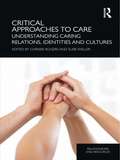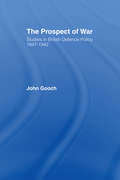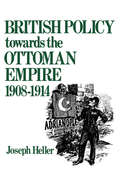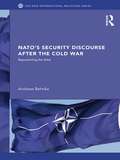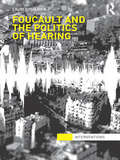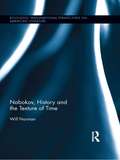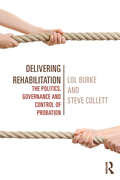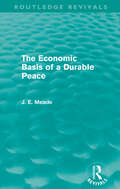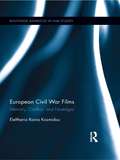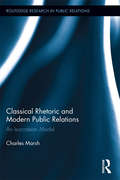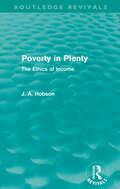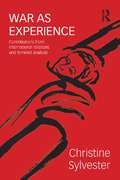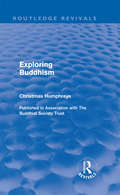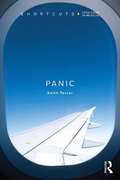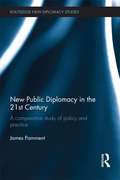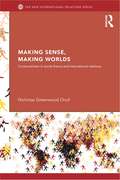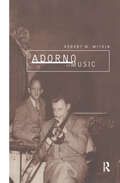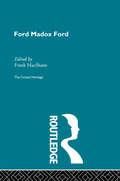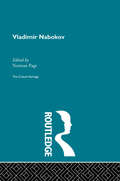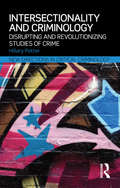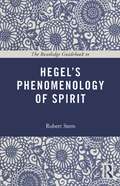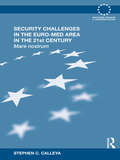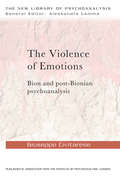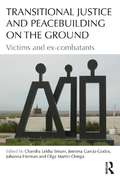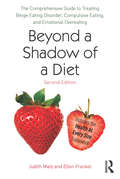Special Collections
Benetech’s Global Certified Accessible Titles
Description: Benetech’s GCA program is the first independent third-party EPUB certification to verify ebook accessibility. By creating content that is born accessible, publishers can meet the needs of all readers. Learn more: https://bornaccessible.benetech.org/
- Table View
- List View
Critical Approaches to Care
by Chrissie Rogers and Susie WellerWhat does ‘care’ mean in contemporary society? How are caring relationships practised in different contexts? What resources do individuals and collectives draw upon in order to care for, care with and care about themselves and others? How do such relationships and practices relate to broader social processes? Care shapes people’s everyday lives and relationships and caring relations and practices influence the economies of different societies. This interdisciplinary book takes a nuanced and context-sensitive approach to exploring caring relationships, identities and practices within and across a variety of cultural, familial, geographical and institutional arenas. Grounded in rich empirical research and discussing key theoretical, policy and practice debates, it provides important, yet often neglected, international and cross-cultural perspectives. It is divided into four sections covering: caring within educational institutions; caring amongst communities and networks; caring and families; and caring across the life-course. Contributing to broader theoretical, philosophical and moral debates associated with the ethics of care, citizenship, justice, relationality and entanglements of power, Critical Approaches to Care is an important work for students and academics studying caring and care work in the fields of health and social care, sociology, social policy, anthropology, education, human geography and politics.
The Prospect of War
by John GoochFirst Published in 1981. Routledge is an imprint of Taylor & Francis, an informa company.
British Policy Towards the Ottoman Empire 1908-1914
by Joseph HellerFirst Published in 2004. Routledge is an imprint of Taylor & Francis, an informa company.
NATO's Security Discourse after the Cold War
by Andreas BehnkeThis book analyses the way in which the North Atlantic Treaty Organisation (NATO) defines the West after the end of the Cold War and the demise of its constitutive ‘Other’, the Soviet Union. The book offers a theoretical critique of liberal approaches to security, and focuses on NATO’s construction of four geo-cultural spaces that are the sites of particular dangers or threats, which cause these spaces to be defined as the ‘enemy’ of the West. While this forges a collective Western identity, effectively achieved in the 1990s, the book also includes an analysis of NATO’s involvement in the War on Terror – an involvement in which the Alliance fails to define a coherent West, thereby undermining the very source of its long-standing political cohesion. Contributing to theoretical development within Critical Security Studies, Behnke draws on a variety of approaches to provide an analytical framework that examines the political as well as philosophical problems associated with NATO’s performance of security and identity, concluding that in the modern era of globalized, non-territorialized threats and dangers, NATO’s traditional spatial understanding of security is no longer effective given the new dynamics of Western security. NATO’s Security Discourse after the Cold War will be of great interest to students and researchers of International Relations, Critical Security Studies and International Organizations.
Foucault & the Politics of Hearing
by Lauri SiisiäinenThe issue of the senses and sensual perception in Michel Foucault’s thought has been a source of prolific discussion already for quite some time. Often, Foucault has been accused of overemphasizing the centrality of sight, and has been portrayed as yet another thinker representative of Western ocularcentricism. This innovative new work seeks to challenge this portrait by presenting an alternative view of Foucault as a thinker for whom the sound, voice, hearing, and listening, the auditory-sonorous, actually did matter. Illustrating how the auditory-sonorous relates most integrally to the most pertinent issues of Foucault - the intertwinement and confrontations of power, knowledge, and resistance - the book both presents novel readings of some of Foucault’s most widely read and commented-on works (such as Discipline and Punish, the first volume of History of Sexuality), and discusses the variety of his lectures, essays, and interviews, some of which have not been noted before. Moving beyond a commentary on Foucault, Siisiainen goes on to examine other philosophers and political thinkers (including Roland Barthes, Jean-Luc Nancy and Jacques Rancière) in this context in order to bring to the fore the potentials in Foucault’s work for the generation of a new perspective for the political genealogy of the sound, hearing, and listening, approaching the former as a key locus of contemporary political struggles. This work will be of great interest to students and scholars in a range of areas including political theory, philosophy, and cultural studies.
Nabokov, History and the Texture of Time
by Will NormanThis book argues that the apparent evasion of history in Vladimir Nabokov’s fiction conceals a profound engagement with social, and therefore political, temporalities. While Nabokov scholarship has long assumed the same position as Nabokov himself — that his works exist in a state of historical exceptionalism — this study restores the content, context, and commentary to Nabokovian time by reading his American work alongside the violent upheavals of twentieth-century ideological conflicts in Europe and the United States. This approach explores how the author’s characteristic temporal manipulations and distortions function as a defensive dialectic against history, an attempt to salvage fiction for autonomous aesthetics. Tracing Nabokov’s understanding of the relationship between history and aesthetics from nineteenth-century Russia through European modernism to the postwar American academy, the book offers detailed contextualized readings of Nabokov’s major writings, exploring the tensions, fissures, and failures in Nabokov’s attempts to assert aesthetic control over historical time. In reading his response to the rise of totalitarianism, the Holocaust, and Cold War, Norman redresses the commonly-expressed admiration for Nabokov’s heroic resistance to history by suggesting the ethical, aesthetic, and political costs of reading and writing in its denial. This book offers a rethinking of Nabokov’s location in literary history, the ideological impulses which inform his fiction, and the importance of temporal aesthetics in negotiating the matrices of modernism.
Delivering Rehabilitation
by Lol Burke and Steve CollettDo offenders have the right to be rehabilitated and should the state be responsible for their rehabilitation? Should the public expect punitive and coercive approaches to offender rehabilitation? Why should the state be interested in the reform of individuals and how can helping offenders be justified when there are other disadvantaged groups in society who are unable to access the services they desperately need? Finally, why does the state appear to target and criminalise certain groups and individuals and not others? These are just some of the questions asked in this new text, which offers an analysis of the delivery of rehabilitative services to offenders over the past two decades. It focuses particularly on the ideological and political imperatives of a neoliberal state that intends to segment the work of the Probation Service and hand over the majority of its work to the private sector. Issues covered include: governance, politics and performance of probation, occupational culture and professional identity, markets, profit and delivery, partnership, localism and civil society, citizenship, exclusion and the State. This book is aimed at academics, practitioners, managers and leaders within the field of corrections and wider social policy. It will also appeal to undergraduates and postgraduates specialising in criminal justice, criminology, politics and social policy.
The Economic Basis of a Durable Peace
by James E. MeadeFirst published in 1940, this book suggested the basic principles upon which a new international economic order should be built at the end of the Second World War. Particular attention is paid to the possibility of constructing such an international order on the basis of divergent national economic systems – whether liberal or planned, capitalist or socialist. In undertaking this task the author combines theoretical analysis with a description of the immediate pre-war economic situation and writes in a language which is equally accessible to the economist and the layman.
European Civil War Films
by Eleftheria Rania KosmidouThis book examines the ways in which late twentieth-century European cinema deals with the neglected subject of civil war. Exploring a range of films about the Spanish, Irish, former Yugoslavia, and Greek civil wars, this comparative and interdisciplinary study engages with contemporary debates in cultural memory and investigates the ways in which cinematic postmemory is problematic. Many of the films present an idealized past that glosses over the reality of these civil wars, at times producing a nostalgic discourse of loss and longing. Other films engage with the past in a melancholic fashion. These cinematic discourses articulate contemporary concerns, especially the loss of ideology and a utopian political horizon in the aftermath of the collapse of the Soviet bloc in 1989, a date that marks a significant break in European history and an accompanying paradigm shift in European cultural memory. Filmmakers examined include Trueba, Cuerda, Loach, Jordan, Kusturica, Dragojević, and Angelopoulos.
Classical Rhetoric and Modern Public Relations
by Charles MarshThis book expands the theoretical foundations of modern public relations, a growing young profession that lacked even a name until the twentieth century. As the discipline seeks guiding theories and paradigms, rhetorics both ancient and modern have proven to be fruitful fields of exploration. Charles Marsh presents Isocratean rhetoric as an instructive antecedent. Isocrates was praised by Cicero and Quintilian as "the master of all rhetoricians," favored over Plato and Aristotle. By delineating the strategic value of Isocratean rhetoric to modern public relations, Marsh addresses the call for research into the philosophical, theoretical, and ethical origins of the field. He also addresses the call among scholars of classical rhetoric for modern relevance. Because Isocrates maintained that stable relationships must solicit and honor dissent, Marsh analyzes both historic and contemporary challenges to Isocratean rhetoric. He then moves forward to establish the modern applications of Isocrates in persuasion, education, strategic planning, new media, postmodern practices, and paradigms such as excellence theory, communitarianism, fully functioning society theory, and reflection.
Poverty in Plenty
by J. A. HobsonFirst published in 1931, this Routledge Revivals title reissues J.A Hobson’s analysis of financial distribution in the early years of Twentieth Century Britain. The book focuses on the moral questions that he considered to be important in regard to the economic reforms that were necessary to secure the utilisation of modern productivity for the welfare of mankind. In this work, Hobson considers the wasteful working of the economic system, with its over-production, under-consumption and unemployment and states that these errors are due to the unfair way in which income is apportioned among the nations, classes and individuals that produce it. Poverty in Plenty argues for a conscious economic government inspired by a sense of justice and humanity. It makes suggestions towards the establishment of such a government and presents business prosperity as a problem of morals.
War as Experience
by Christine SylvesterThis book is a major new contribution to our understanding of war and international relations (IR). Divided into two sections, the first part surveys the state of war and war studies in international relations, security studies and in feminist international relations. The second part addresses a missing area of IR studies of war that feminism is well-placed to fill in: the emotional and physical aspects of war. The author examines a wide variety of conflict situations, such as the Israel/Palestine dispute, the Cold War, Vietnam, Nicaragua, wars of liberation in Africa, genocidal war in Rwanda; humanitarian interventionist war in the Balkans, the recent wars in Afghanistan and Iraq and the 'war on terror'. Drawing on the latest feminist thinking, the author demonstrates how war is experienced as a body-based politics and in so doing provides an innovative and challenging corrective to traditional theories of war in international relations. This will be essential reading for all those with an interest in gender, war and international relations.
Exploring Buddhism
by Christmas HumphreysThe Buddhist field of knowledge is now so vast that few can master all of it, and the study and application of its principles must be a matter of choice. One may choose the magnificent moral philosophy of Theravada, the oldest school, or the Zen training of Japan; or special themes such as the doctrine of No-self, the Mahayana emphasis on compassion or the universal law of Karma and Rebirth. But the intense self-discipline needed for true spiritual experience calls for specialization of subject and technique. In this reissue, first published in 1974, Christmas Humphreys takes us on a personal journey through Buddhism, offering insights into the many different paths, doctrines and approaches to Buddhism. This collection of twenty essays ranges from history to doctrine, and from the rise of Buddhism in the West through to the finer points of its everyday practice. It is a truly valuable piece of Western Buddhist literature and its reissue will be welcomed be scholars of Buddhism and interested laypeople alike.
Panic
by Keith TesterImpending environmental catastrophe, threat of terrorism, viruses both biological and virtual, disease: there seem to be so many reasons to panic today. But what is panic and why does it happen? This book uses a range of literature from sociology, cultural studies and popular psychology to develop an original analysis of panic in contemporary social life. Bringing together academic literature from a range of disciplines, films, novels and current affairs, it encourages thought about why and how we panic – both individually and collectively. Keith Tester explores how cataclysmic events and smaller-scale episodes expose the fragility of our relationships, institutions and expectations. He shows how thinking about panic reveals key aspects of contemporary social, cultural and personal relationships. Panic is a highly readable and incisive introduction to the subject for students, scholars and all those who want to know what panic means and why it is important.
New Public Diplomacy in the 21st Century
by James PammentThis book examines the concept of new public diplomacy against empirical data derived from three country case studies, in order to offer a systematic assessment of policy and practice in the early 21st century. The new public diplomacy (PD) is a major paradigm shift in international political communication. Globalisation and a new media landscape challenge traditional foreign ministry ‘gatekeeper’ structures, and foreign ministries can no longer lay claim to being sole or dominant actors in communicating foreign policy. This demands new ways of elucidating foreign policy to a range of nongovernmental international actors, and new ways of evaluating the influence of these communicative efforts. The author investigates the methods and strategies used by five foreign ministries and cultural institutes in three countries as they attempt to adapt their PD practices to the demands of the new public diplomacy environment. Drawing upon case studies of US, British, and Swedish efforts, each chapter covers national policy, current activities, evaluation methods, and examples of individual campaigns. This book will be of much interest to students of public diplomacy, foreign policy, political communication, media studies and international relations in general.
Making Sense, Making Worlds
by Nicholas OnufNicholas Onuf is a leading scholar in international relations and introduced constructivism to international relations, coining the term constructivism in his book World of Our Making (1989). He was featured as one of twelve scholars featured in Iver B. Neumann and Ole Wæver, eds., The Future of International Relations: Masters in the Making? (1996); and featured in Martin Griffiths, Steven C. Roach and M. Scott Solomon, Fifty Key Thinkers in International Relations, 2nd ed. (2009). This powerful collection of essays clarifies Onuf’s approach to international relations and makes a decisive contribution to the debates in IR concerning theory. It embeds the theoretical project in the wider horizon of how we understand ourselves and the world. Onuf updates earlier themes and his general constructivist approach, and develops some newer lines of research, such as the work on metaphors and the re-grounding in much more Aristotle than before. A complement to the author’s groundbreaking book of 1989, World of Our Making, this tightly argued book draws extensively from philosophy and social theory to advance constructivism in International Relations. Making Sense, Making Worlds will be vital reading for students and scholars of international relations, international relations theory, social theory and law.
Adorno on Music
by Robert W. WitkinAdorno is one of the leading cultural thinkers of the twentieth century. This is the first detailed account of Adorno's texts on music from a sociological perspective. In clear, non-technical language, Robert Witkin guides the reader through the complexities of Adorno's argument about the link between music and morality and between musical works and social structure. It was largely through these works Adorno established the right of the arts to be acknowledged as a moral and critical force in the development of a modern society. By recovering them for non-musicologists, Witkin adds immeasurably to our appreciation of this giant of twentieth-century thought.
Ford Maddox Ford
by Frank MacShaneThis set comprises 40 volumes covering nineteenth and twentieth century European and American authors. These volumes will be available as a complete set, mini boxed sets (by theme) or as individual volumes. This second set compliments the first 68 volume set of Critical Heritage published by Routledge in October 1995.
Vladimir Nabokov
by Norman PageThis set comprises of 40 volumes covering nineteenth and twentieth century European and American authors. These volumes will be available as a complete set, mini boxed sets (by theme) or as individual volumes. This second set compliments the first 68 volume set of Critical Heritage published by Routledge in October 1995.
Intersectionality and Criminology
by Hillary PotterThe use of intersectionality theory in the social sciences has proliferated in the past several years, putting forward the argument that the interconnected identities of individuals, and the way these identities are perceived and responded to by others, must be a necessary part of any analysis. Fundamentally, intersectionality claims that not only are people’s lived experiences affected by their racial identity and by their gender identity, but that these identities, and others, continually operate together and affect each other. With "official" statistical data that indicate people of Color have higher offending and victimization rates than White people, and with the overrepresentation of men and people of Color in the criminal legal system, new theories are required that address these phenomena and that are devoid of stereotypical or debasing underpinnings. Intersectionality and Criminology provides a comprehensive review of the need for, and use of, intersectionality in the study of crime, criminality, and the criminal legal system. This is essential reading for academics and students researching and studying in the fields of crime, criminal justice, theoretical criminology, and gender, race, and socioeconomic class.
The Routledge Guidebook to Hegel's Phenomenology of Spirit
by Robert SternThe Phenomenology of Spirit is arguably Hegel’s most influential and important work, and is considered to be essential in understanding Hegel’s philosophical system and his contribution to western philosophy. The Routledge Guidebook to Hegel’s Phenomenology of Spirit introduces the major themes in Hegel’s great book and aids the reader in understanding this key work, examining: The context of Hegel’s thought and the background to his writing Each separate part of the text in relation to its goals, meaning and significance The reception the book has received since its publication The relevance of Hegel’s ideas to modern philosophy With a helpful introductory overview of the text, end of chapter summaries and further reading included throughout, this text is essential reading for all students of philosophy, and all those wishing to get to grips with Hegel’s contribution to our intellectual world.
Security Challenges in the Euro-Med Area in the 21st Century
by Stephen CalleyaThis book examines and assesses the main security factors influencing Euro-Mediterranean relations at the start of the twenty-first century. Developing a theoretical framework based on the security complex, this book provides an empirical analysis of security challenges in the Euro-Mediterranean area that distinguishes between short, medium and long-term threats and highlights the political, military, economic, societal and environmental issues that are already serving as a source of instability in the region. Including analysis of the 2011 Arab Spring, the author examines the consequences and looks to the future of security in the Euro-Mediterranean region. Acknowledging the strategic significance of this region between Europe and the Middle East, the book identifies the main stakeholders within today’s debate on the future of Euro-Mediterranean relations and focuses on their main security interests in this region. It features a policy analysis of the main actors in the Mediterranean, including NATO, the United States, and the European Union and addresses issues including illegal migration, terrorism, religious intolerance and the lack of human rights Security Challenges in the Euro-Med Area in the 21st Century be of interest to students and scholars of European Politics, Security Studies and International Relations.
The Violence of Emotions
by Giuseppe CivitareseIn The Violence of Emotions the author marries an ability to introduce the reader to the intimate climate of an analytic session with a passionate rereading of Bion. To emphasize both the empirical nature of psychoanalysis and its extraordinary capacity to engender illuminating hypotheses concerning the functioning of the mind, clinical examples alternate with theoretical argument. The psychoanalytic model espoused by Giuseppe Civitarese in his approach to both is analytic field theory. Developed by various authors, including Ferro, commencing with Bion and continued with contributions from the Barangers, Grotstein and Ogden, the theory of the analytic field reveals the social nature of subjectivity and, in clinical work, the intersubjective and dreamlike climate in which a psychoanalytic session unfolds. This leads to a new way of interpreting the facts of analysis. As such, topics of discussion include: transcending the caesura as Bion’s theoretical method hypochondria as de-subjectivation and narrative genre in analysis the aesthetic conflict and alfa function Bion’s search for ambiguity the casting of characters in the analytic dialogue metaphor of text and translation in Freud and Bion. Yet the book has an even more specific objective, focusing attention as it does on the central importance of emotions in mental life and of aesthetic experience as the model of what truly happens in analysis. This is an aspect which the author rediscovers and explores in the thought of Bion and his successors, and which he regards as a way of investigating the deepest and most primitive levels of mental life. This book will be of great interest to psychiatrists, psychoanalysts, and psychotherapists.
Transitional Justice and Peacebuilding on the Ground
by Chandra Lekha Sriram and Olga Martin-Ortega and Johanna Herman and Jemima Garcia-GodosThis book seeks to refine our understanding of transitional justice and peacebuilding, and long-term security and reintegration challenges after violent conflicts. As recent events following political change during the so-called 'Arab Spring' demonstrate, demands for accountability often follow or attend conflict and political transition. While traditionally much literature and many practitioners highlighted tensions between peacebuilding and justice, recent research and practice demonstrates a turn away from the supposed 'peace vs justice' dilemma. This volume examines the complex relationship between peacebuilding and transitional justice through the lenses of the increased emphasis on victim-centred approaches to justice and the widespread practices of disarmament, demobilization, and reintegration (DDR) of excombatants. While recent volumes have sought to address either DDR or victim-centred approaches to justice, none has sought to make connections between the two, much less to place them in the larger context of the increasing linkages between transitional justice and peacebuilding. This book will be of great interest to students of transitional justice, peacebuilding, human rights, war and conflict studies, security studies and IR.
Beyond a Shadow of a Diet
by Judith Matz and Ellen FrankelBeyond a Shadow of a Diet is the most comprehensive book available for professionals working with clients who struggle with Binge Eating Disorder, Compulsive Eating or Emotional Overeating. The authors present research revealing that food restrictions in the pursuit of weight loss actually trigger and sustain overeating. Next, they offer step-by-step guidelines to help clients end the diet mentality and learn an internally-based approach known as attuned eating. Divided into three sections–The Problem, The Treatment and The Solution–this engaging book contains chapters filled with compelling case examples, visualizations and other exercises so that therapists can deepen their knowledge and skills as they help clients gain freedom from preoccupation with food and weight. In addition to addressing the symptoms, dynamics and treatment of eating problems, Beyond a Shadow of a Diet presents a holistic framework that goes well beyond the clinical setting. This invaluable resource includes topics such as the clinician’s own attitudes toward dieting and weight; cultural, ethical and social justice issues; the neuroscience of mindfulness; weight stigma; and promoting wellness for children of all sizes. Drawing from the Health At Every Size paradigm–and the wealth of research examining the relationship between dieting, weight and health–Beyond a Shadow of a Diet offers both therapists and their clients a positive, evidence-based model to making peace with food, their bodies and themselves.
